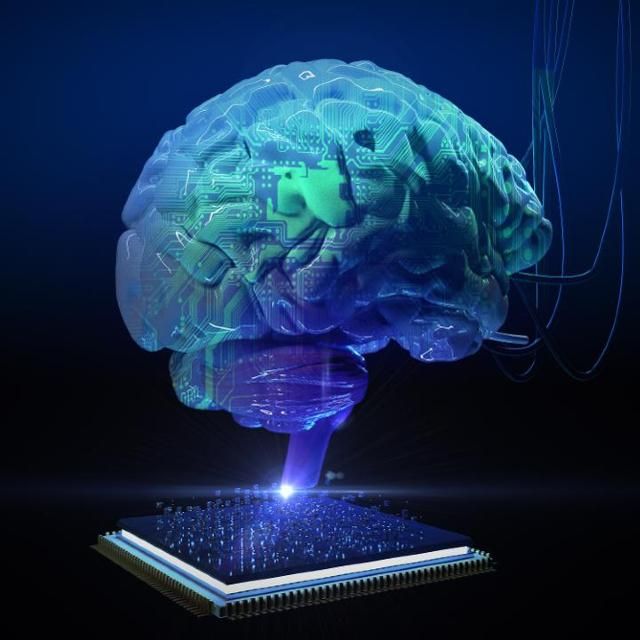Can an individual keep up with the advancing of technology? Can a team of individuals stay up to date in today’s digital-dominant world without the assistance of technology?
Think of all the tasks that need to be performed before any piece of content goes live: keyword research, reviewing data, analytics and trends, search engine optimization and content writing — from personalizing to optimizing. Tasks like these can quickly add up, and marketers are spending valuable writing hours researching, testing and optimizing.
However, as the digital world expands and technology grows increasingly advanced, there’s no denying that artificial intelligence (AI) is going to — and has already started to — change the game of content marketing:
1. Chatbots’ 24/7 Interaction With Users
You see it all the time — chatbots on websites providing detailed information to consumers who want answers immediately. However, chatbots are no longer just on websites, they’re everywhere. Facebook Messenger now has the ability to converse with users. The app mimics real-life conversations with consumers so they don’t have to fill out a generic form. This provides users with quick and immediate answers to their questions and purchases throughout the customer journey. Now, users feel like they’re having a normal conversation with a human being as opposed to a robot.
2. Custom Feed Algorithms
With the advancement of technology, marketers can track and analyze what users are interested in. This then allows content strategists to generate news, articles, blogs and other forms of content that users are more likely to interact and engage with.
For instance, social media has created such a presence in the digital world. Upon analyzing data, marketers can generate social media posts that are relevant to what consumers are searching for, such as products or services.
Take Facebook, for example. When you first set up your Facebook account, you select things you are interested in, such as bands or companies. Over time, you probably will have “liked” and followed several pages. These interests of yours are then taken into account for advertising. For instance, the Grand Ole Opry used Facebook ads to sell tickets online. Marketers used data from previous posts and page likes to advertise ticket sales to those interested. This means that users who previously shared the post or liked posts regarding upcoming events received the Grand Ole Opry’s advertisement regarding ticket sales. This brings custom content directly to users on their social feed.
3. Predictive Analytics
Predictive analytics help marketers observe consumers’ behaviors and create profiles based on those actions. With AI, marketers can review predictive analytics and generate relevant content based on the data. This is huge for digital marketing because strategists can then provide personalized, valuable content to individuals at each stage of the customer journey.
Think of Amazon. You’ve browsed the site, found a few items you’re interested in and saved them for later. You’re in the consideration stage of the customer journey. You have found products you like and are now considering purchasing them. Next, you visit Instagram, and as you’re scrolling through, an ad from Amazon appears with the products you just recently viewed along with similar or related products. Seeing the products again, you feel compelled to purchase them. You close Instagram, open Amazon and check out. This is AI creating custom, personalized content for individual users at each buying stage of the customer journey.
4. Content Strategy Research and Development
Consistently researching and generating engaging, relevant and insightful content can be difficult and time-consuming. While researching the top trends is beneficial, it takes almost the same amount of time writing does. Fortunately, as mentioned above, AI helps content marketers create content that is relevant to their target audience at each buying stage of the marketing funnel. With AI, content marketers can focus more of their attention on writing the context, rather than spending time researching and analyzing.
AI can also analyze and compare data quicker than a human can. This provides content marketers with data for their content strategy development. AI allows strategists to produce content that is relevant and trending, based on the numbers rather than gut feeling.
5. Quick Content Generation
AI has become so advanced that machines can pull data and analytics and incorporate them into content, such as articles and blogs. AI has the capability to perform simple content optimization tasks, such as:
• Content Research: Analyzing Google trends and analytics.
• Content Suggestions and Recommendations: Upon analyzing Google Analytics, AI recommends content ideas that align with trending topics.
• Search Engine Optimization (SEO): AI can recommend SEO strategies for more relevant, valuable content.
Technology will never stop advancing, and the digital world will only continue to grow. With so much competition in the digital world and only so much time to generate more content, AI is a dynamic game changer for digital marketing. From 24/7 chatbots, analyzing data and trends, custom feeds and generating content, the limit to what AI can do for content marketing does not exist.
